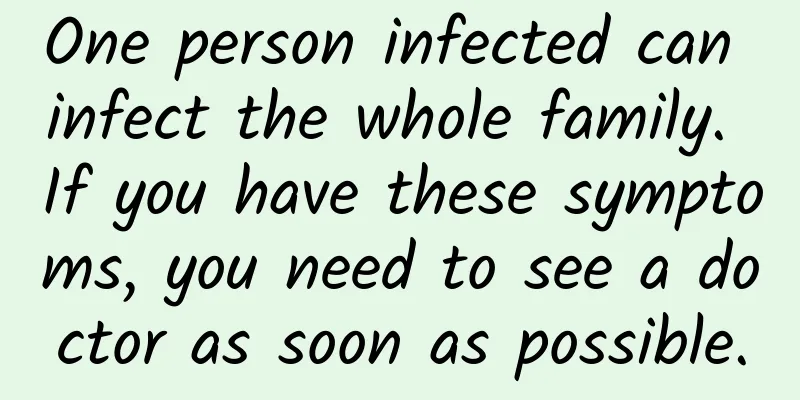Eczema troubles solved

|
What is eczema √A chronic inflammatory itchy skin disease. √ Polymorphous rash, symmetrical distribution, tendency to exudate, and pruritus. √ Eczema affects a wide range of people, regardless of age, gender or region. √ Prone to relapse, requiring long-term treatment. Clinical manifestations The prevalence rate in the general population in my country is about 3% to 5%, and it can reach 10% to 20% among children, which shows that the disease is very common. 1. According to the manifestation of skin lesions, it is divided into three stages: acute, subacute and chronic. (1) Acute eczema: The skin lesions are initially numerous and densely packed millet-sized papules, papulovesicles or small blisters, with a flushed base, which gradually merge into patches. Due to scratching, the papules, papulovesicles or blisters may be scratched to reveal obvious punctate exudation and small erosions with unclear edges. If secondary infection occurs, the inflammation is more obvious, and pustules, pus crusts, folliculitis, furunculosis, etc. may form. The patient will feel intense itching. It is common on the head, face, behind the ears, distal extremities, scrotum, perianal area, etc., and is often distributed symmetrically. (2) Subacute eczema: After the inflammation of acute eczema is alleviated, the skin lesions are mainly small papules, scabs and scales, with only a small amount of papulovesicles and erosions. Severe itching still occurs. (3) Chronic eczema: Chronic eczema often develops from repeated attacks of acute or subacute eczema. It may also be chronic eczema from the beginning. The skin in the affected area becomes thickened and infiltrated, brownish red or pigmented, with a rough surface and covered with scales, or scabs due to scratching. The patient feels intense itching. It is common in the calves, hands, feet, elbows, popliteal fossa, vulva, anus, etc. The course of the disease is uncertain, it is easy to relapse, and it does not heal for a long time. 2. According to the scope of skin lesions, it is divided into two categories: localized eczema and generalized eczema. (1) Localized eczema: occurs only in specific parts of the body, and can be named according to the part of the body, such as hand eczema, vulvar eczema, scrotal eczema, ear eczema, breast eczema, perianal eczema, calf eczema, etc. (2) Generalized eczema: There are many skin lesions, which are widespread or scattered in multiple parts of the body, such as nummular eczema, autosensitive eczema, and seborrheic eczema. Clinical treatment The cause of eczema is complex, and it is easy to relapse after treatment, making it difficult to cure. Because the clinical morphology and location are different, the medication varies from person to person. 1. General principles of prevention and treatment: look for possible causes, such as work environment, living habits, diet, hobbies, thoughts and emotions, as well as the presence or absence of chronic lesions and visceral organ diseases. 2. Internal therapy: Use antihistamines to relieve itching, and use two drugs together or alternately when necessary. For generalized eczema, glucocorticoids can be taken orally or injected, but they should not be used for a long time. 3. Topical therapy: Choose appropriate dosage forms and drugs according to the skin lesions. For acute eczema, use local saline, 3% boric acid or 1:2000-1:10000 potassium permanganate solution for washing and wet compresses, and calamine lotion for astringency and protection. For subacute and chronic eczema, use appropriate glucocorticoid creams, tar preparations or immunomodulators, such as tacrolimus ointment and pimecrolimus ointment. For secondary infection, add antibiotic preparations. How to prevent it 1. Avoid possible triggering factors. 2. Avoid all kinds of external stimulation, such as hot water washing, excessive scratching, washing and contact with potentially sensitive substances such as fur preparations, etc. Avoid contact with chemical products such as soap, washing powder, detergent, etc. 3. Avoid foods that may cause allergies and irritation, such as chili peppers, strong tea, coffee, and alcohol. 4. Use the medicine under the guidance of a professional physician and avoid using it indiscriminately. Daily life management √ Develop healthy eating habits and avoid partial eating. The daily diet of patients with eczema should be light, easy to digest, low in salt and oil. Eat less milk, fish, eggs and other foods that can easily aggravate the condition and cause allergies, and avoid spicy foods. For infants and young children with eczema, breastfeeding should be ensured as much as possible. √ Take a proper bath, 2-3 times a week. It is best to take a shower. Do not use hot water to wash or over-clean the affected area to avoid aggravating the condition. Use a neutral bath gel or soap when bathing. Dry your body in time after washing, and apply topical moisturizer to the affected area. √Try to wear soft, loose clothes made of cotton or other natural fibers, and wear less clothes made of artificial fibers and wool that may cause allergies, so as not to aggravate the symptoms of allergies. √ Pay attention to controlling the indoor temperature and humidity. An overly hot or dry environment can cause eczema to recur. Therefore, patients with this disease should ensure indoor air circulation in summer. When using heating in winter, you can place a humidifier or a basin of water in the room to maintain relative humidity in the room. You can apply oily lotion on the skin to moisturize the skin when necessary. √ Protect the affected area when going out, especially avoid exposure to wind or prolonged sunlight to prevent dry skin and worsening of the condition. √ Patients with eczema should maintain a happy mood at ordinary times and avoid the emergence of negative emotions such as tension, depression, anxiety, irritability, anger, etc. This will also be conducive to recovery from the disease. |
<<: [Popular Science] How to Identify Prostatic Hyperplasia
>>: Can babies take hormone drugs?
Recommend
What to do if your menstrual flow is light after abortion
Physical health is often closely related to menst...
What are the health care and maintenance methods for women who sleep late
Women who love beauty attach great importance to ...
Scar pictures of minimally invasive breast surgery
Some people may receive minimally invasive breast...
If one generation of a family suffers from cancer, will it affect the next few generations? Is cancer contagious in families?
Immortality is something everyone dreams of. From...
What to do when breasts hurt while breastfeeding
Breast pain during breastfeeding is a problem enc...
Men also have menopause? It can last for 20 years...
Menopause is something that many people are famil...
What are the symptoms if you are pregnant?
What are the symptoms of being pregnant for one o...
What are pecans?
...
Where in Yunnan is the best place to grow walnuts? What is the Water Splashing Festival in Yunnan?
Yunnan not only has beautiful scenery, but also a...
How long does it take to get pregnant after taking metronidazole?
Although drugs such as metronidazole are very com...
What causes left side abdominal pain during early pregnancy?
During pregnancy, there will be different degrees...
How long does it take to complete a painless abortion?
Painless abortion is most suitable for women who ...
Breast nodules have 3 types of blood flow signals
Will breast nodules with type 3 blood signals be ...
6 foods that cancer cells love most, and you may eat them every day
Cancer is a terrible disease, but many people don...









